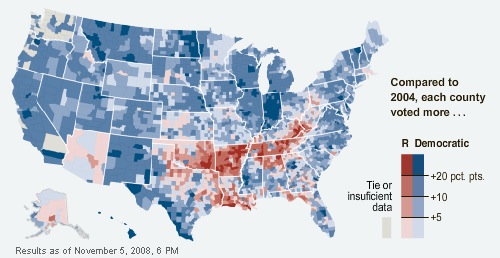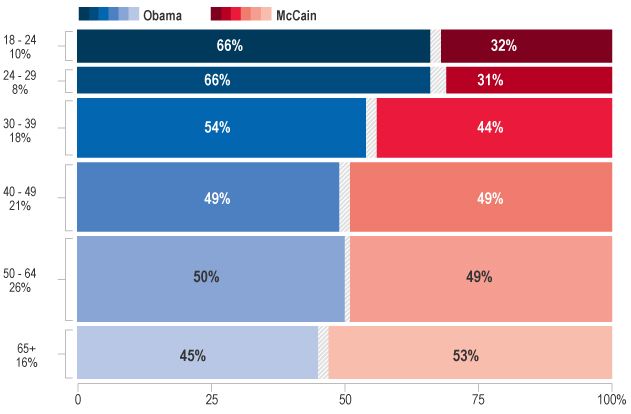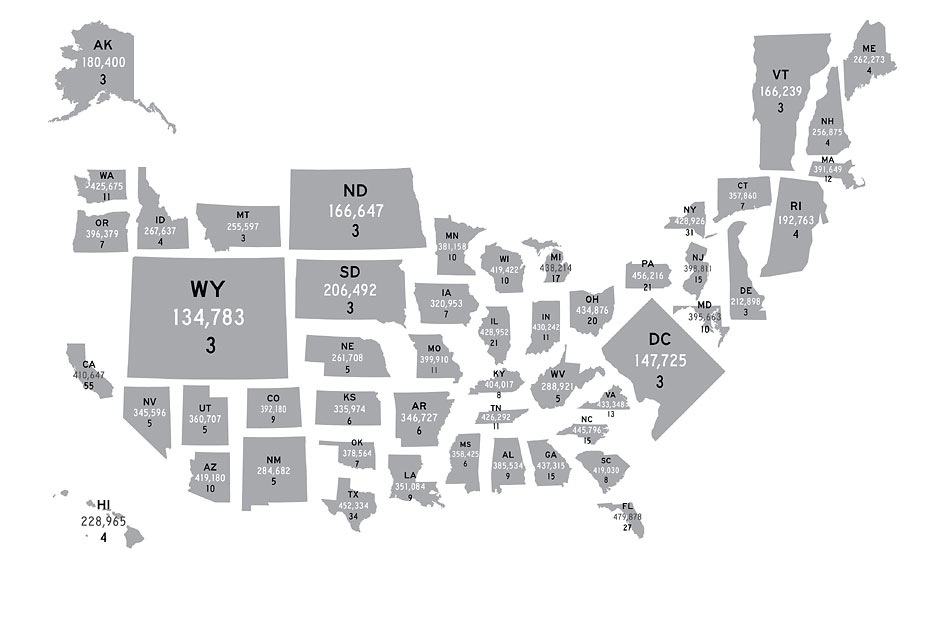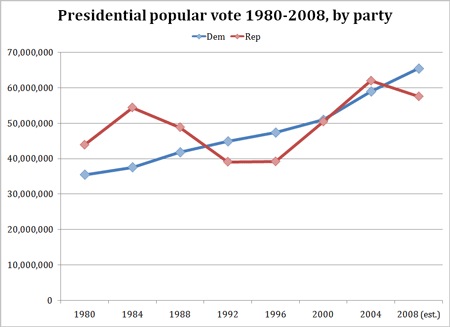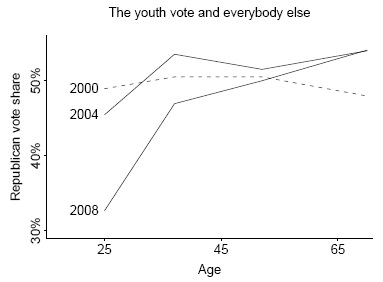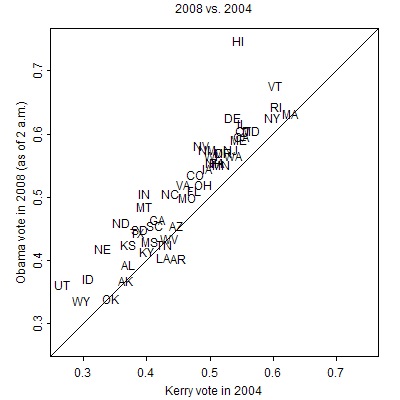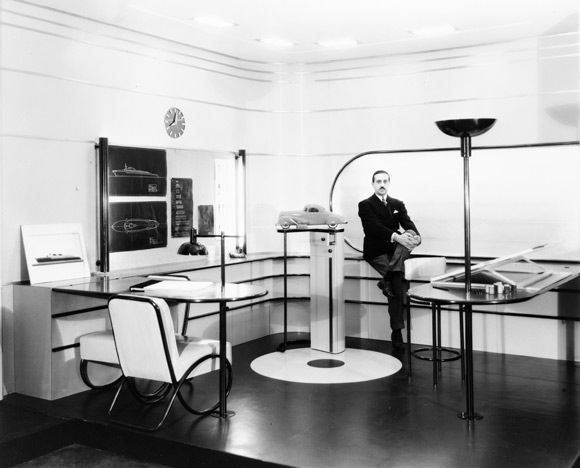I’m pleased with Obama’s win, on balance, and certainly grateful to be out of earshot of Ms Palin for at least a few months. But let’s not get too carried away.
Can we talk about the real Obama now?
As things now stand, the election primarily represents the extremist center seizing power back from the extremist right. We have moved from the prospect of disasters to the relative comfort of mere crises.
Using the word ‘extreme’ alongside the term ‘center’ is no exaggeration. Nearly all major damage to the United States in recent years — a rare exception being 9/11 — has been the result of decisions made not by right or left but by the post partisan middle: Vietnam, Iraq, the assault on constitutional liberties, the huge damage to the environment, and the collapse of the economy — to name a few. Go back further in history and you’ll find, for example, the KKK riddled with members of the establishment including — in Colorado — a future governor, senator and mayor after whom Denver’s airport is named. The center, to which Obama pays such homage, has always been where most of the trouble lies.
The only thing that will make Obama the president pictured in the campaign fantasy is unapologetic, unswerving and unendingly pressure on him in a progressive and moral direction, for he will not go there on his own. But what, say, gave the New Deal its progressive nature was pressure from the left of a sort that simply doesn’t exist today.
Above are listed nearly three dozen things that Obama supports or opposes with which no good liberal or progressive would agree. Unfortunately, what’s out there now, however, looks more like a rock concert crowd or evangelical tent meeting than a determined and directed political constituency. Which isn’t so surprising given how successful our system have been at getting people to accept sights, sounds, symbols and semiotics as substitutes for reality. Once again, it looks like we’ll have to learn the hard way.
Andrew Brown points out elsewhere that Obama is fundamentally a conservative. ACB seems a little happier about that than I am, but he’s not wrong on the basic point, and I’m no conservative.
I suppose I would have been less shocked and disappointed if Obama had lost than when Kerry did because I could not, still cannot, imagine how anyone could have regarded Bush as even minimally competent by November 2004. But still it was extraordinary to wake at ten past four this morning, and switch on the kitchen radio in the middle of McCain’s concession speech. It was the best news since 1989. I don’t really suppose that Obama can rescue America but what gives me hope is the fantastic volunteer effort that got him elected. It’s impossible to imagine that kind of popular movement in this country, even for donkey welfare.
One other point: Tim Bray, in his comments, was lamenting the absence of a credible conservative voice in American politics. But as far as I can hear, this is exactly the voice they have elected. Just as Kerry was an Eisenhower Republican, Obama seems to me to be exactly the kind of conservative who understands when change is inevitable. The great question is he will prove enough of a statesman to manage things so that everything changes in order for everything to stay the same. Whatever else he is, he’s not a destructive revolutionary, far less so than Bush was in his blundering way.
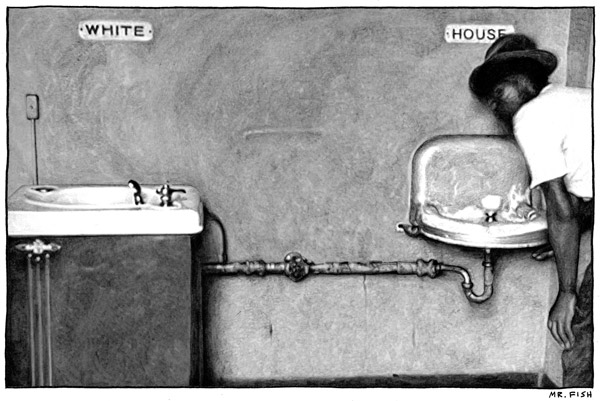

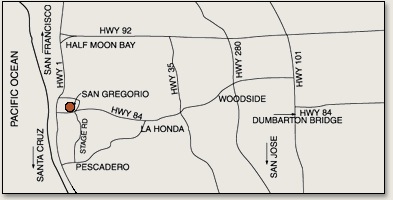
 That appears to change as of this election, with the Omaha World-Herald reporting that Obama has won in NE CD-2, which contains Omaha itself. That leaves Obama with 365 electoral votes; only Missouri (11 votes) remains to be decided.
That appears to change as of this election, with the Omaha World-Herald reporting that Obama has won in NE CD-2, which contains Omaha itself. That leaves Obama with 365 electoral votes; only Missouri (11 votes) remains to be decided. Brother Don and Friend Gillian, proprietors of the online runners’ supply (among other things) store
Brother Don and Friend Gillian, proprietors of the online runners’ supply (among other things) store  Go there for your running needs, certainly, but the reason I go (brotherly love aside) is the coffee, than which there is none better on the Peninsula. Truly. I know about this. You’ll find Don behind the espresso cart; say hi for me.
Go there for your running needs, certainly, but the reason I go (brotherly love aside) is the coffee, than which there is none better on the Peninsula. Truly. I know about this. You’ll find Don behind the espresso cart; say hi for me.
